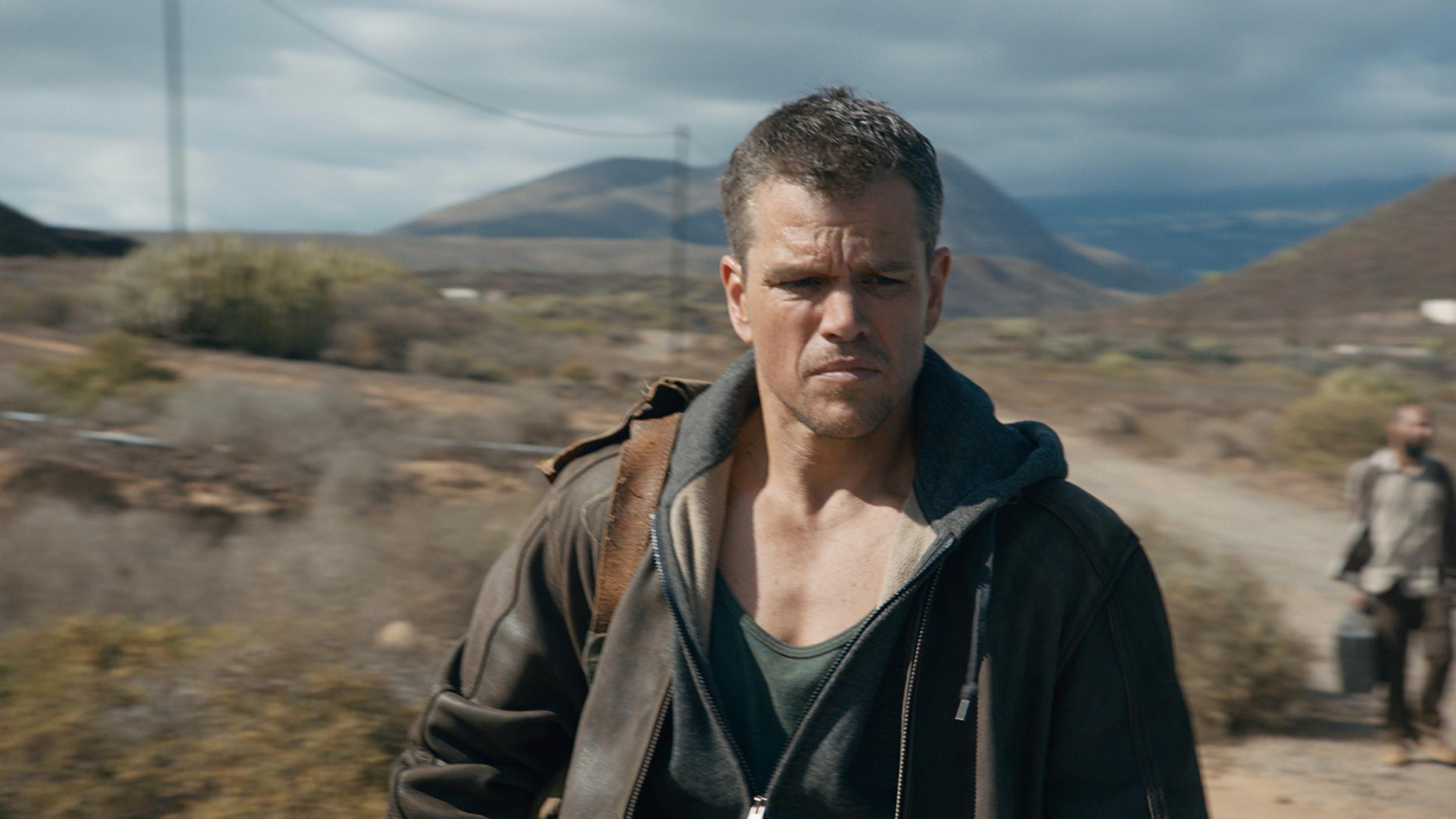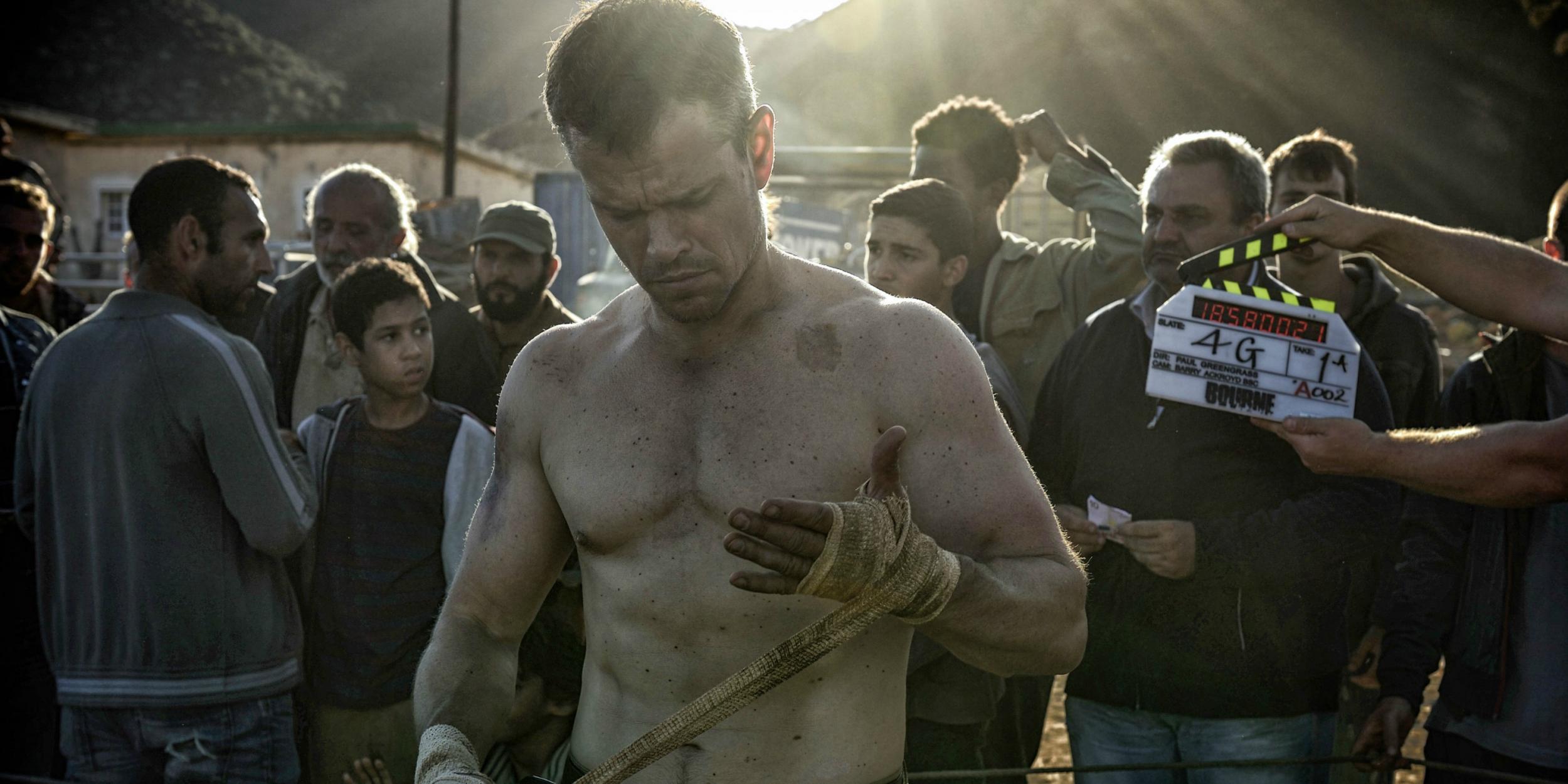Jason Bourne, film review: Matt Damon plays the lead with every bit as much intensity as the first film
Bravura filmmaking but also one-dimensional, with one action set-piece after another

Your support helps us to tell the story
From reproductive rights to climate change to Big Tech, The Independent is on the ground when the story is developing. Whether it's investigating the financials of Elon Musk's pro-Trump PAC or producing our latest documentary, 'The A Word', which shines a light on the American women fighting for reproductive rights, we know how important it is to parse out the facts from the messaging.
At such a critical moment in US history, we need reporters on the ground. Your donation allows us to keep sending journalists to speak to both sides of the story.
The Independent is trusted by Americans across the entire political spectrum. And unlike many other quality news outlets, we choose not to lock Americans out of our reporting and analysis with paywalls. We believe quality journalism should be available to everyone, paid for by those who can afford it.
Your support makes all the difference.Dir: Paul Greengrass, 123 mins, starring: Matt Damon, Julia Stiles, Tommy Lee Jones, Alicia Vikander, Vincent Cassel
There are few fictional characters as permanently on edge as Jason Bourne. Whenever and wherever he is shown on screen, there is likely to be juddering, handheld camerawork and pulsating music. If director Paul Greengrass was ever to show him brushing his teeth, you can just imagine how tight the dental floss would be pulled and the sense of paranoia Bourne would feel as he squeezed the toothpaste tube.
Not that Greengrass ever would show him in such a scene. The point about Bourne is that he doesn’t relax. There are no martinis for him and no opportunities for innuendo-laden badinage with Miss Moneypenny. When he’s off duty, he’ll probably be found enjoying a little bare-knuckle boxing to keep in trim. His driven quality is both his glory and one of his greatest shortcomings. He has no inner life.
As a pure action movie, Jason Bourne is tremendous. Matt Damon is now in his mid-40s but he plays Bourne with every bit as much intensity as when he first tackled the role in The Bourne Identity. Greengrass, with his background directing for The World In Action, has always managed to bring a grittiness to even his most far-fetched Hollywood assignments. Elements here, notably the final reel chase through Las Vegas, verge on the preposterous, but when the pacing is so relentless and the commitment of the director and star are so unwavering, there is no time to pick holes in the storytelling. The film contains explicit references to Edward Snowden and Big Brother-like CIA snooping. It features austerity-driven riots in Greece, torture scenes and continual nods to other topical political issues but all this is really just window dressing. Jason Bourne is a two-hour chase movie. In almost every scene, Bourne is either pursuing or being pursued. If ever he does stop to rest for a moment, he will be tormented by memories of what happened to his beloved secret agent father, who had a shadowy agency past of his own. (Greengrass throws in jarring, elliptical flashbacks featuring the father and hinting that his colleagues betrayed him.)
It helps that Bourne has such formidable antagonists. As his would-be nemesis, the sleekly malevolent Vincent Cassel is every bit as resourceful and duplicitous as Bourne himself. He isn’t given much dialogue and doesn’t even have a proper name (he is referred to as “the asset”) but he still comes close to stealing the film. As CIA director Robert Dewey, Tommy Lee Jones gives another of his chilling, dead-eyed performances, exuding cynicism and false bonhomie.
Bourne’s resilience in the field is matched by that of the CIA agent Heather Lee (Alicia Vikander) in cyber affairs. She is an intriguing character. We’re never quite able to work out where her ruthlessness ends or her altruism begins. In a more conventional espionage thriller, the filmmakers would carve out time for a romantic sub-plot involving Bourne and Heather Lee. There is no time for candlelit dinners here. Instead, the contact between them is through very terse telephone conversations or rushed meetings to discuss stake-outs. The closest Bourne comes to portraying any meaningful emotion is in his scenes in Athens with Nicky Parsons (Julia Stiles), who has downloaded and stolen secret information, stored on a USB stick and revealing CIA skullduggery.

Jason Bourne shares several hallmarks with Hitchcock films. As in The Man Who Knew Too Much, there is a climactic scene with an assassin in the wings. When he is fleeing his pursuers, Bourne occasionally seems like a more macho version of the Cary Grant character in North By Northwest. The USB stick with the hidden information is just the kind of McGuffin that Hitchcock would have delighted in using in one of his plots.
This is bravura filmmaking but it is also one-dimensional. The James Bond films, for all their excesses and kitsch elements, are richer than the Bourne movies because they pay more attention to the human factor. Bourne, by contrast, pounds us with one action set piece after another. In themselves, they make riveting viewing but the characters, most notably Bourne himself, are little more than ciphers.
Join our commenting forum
Join thought-provoking conversations, follow other Independent readers and see their replies
Comments